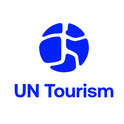The World Tourism Organization (UNWTO) and the Tourism Authority of Panama (ATP) Promote Innovation Through Community Tourism
The World Tourism Organization (UNWTO) and the Tourism Authority of Panama (ATP) have launched the Innovative Community Tourism Experiences Competition to promote innovation through alliances between tour operators and community tourism providers.


With the presence of 30 community leaders, with their colorful traditional outfits that represent the cultural diversity of the different indigenous, Afro and mestizo peoples of Panama, the UNWTO and the ATP shared with the media the official details of the competition.
The Competition will promote innovative and disruptive tourism experiences that encourage the conservation and regeneration of the natural and cultural heritage of Panama and the empowerment of local communities. The categories of the contest will reflect the five Heritage Routes of Panama established in the Sustainable Tourism Master Plan 2020-2025: (1) Bridge of the World Route, (2) Crucible of Cultures Route, (3) Forests of Life Route, (4) Birds in Paradise, (5) Wonders of the Ocean.
Applications to participate will be open until 15 March 2023. The grand winner of the contest will receive: (a) a prize of US$25,000 in infrastructure for the community of the winning experience, (b) a spot to exhibit the experience at the Adventure Travel World Summit 2023 in Japan. The five finalist experiences will receive: (a) a course from the UNWTO Tourism Online Academy, (b) inclusion in the UNWTO Innovation Network, with global visibility through UNWTO social media channels, (c) seed capital of US$2,000 each for the communities, (d) a spot for each of the 5 finalists in Adventure Next Latin America 2023 to market their experiences.
UNWTO Secretary General Zurab Pololikashvili said: “During the pandemic, technology and the growing sense of responsibility have created a need to develop new transformative products that are more inclusive and sustainable, and with this competition we are promoting an effort in this direction.”
The Minister of Tourism of Panama, Iván Eskildsen, highlighted: “Our Sustainable Tourism Master Plan establishes that, in order to achieve true sustainability, local communities must be at the centre of the tourism phenomenon. We value the support of the UNWTO and its commitment to the transformation of our industry.”
As of July 2022, Panama has exceeded the figure of 1 million visitors, more than triple the visitor arrivals in 2021. With this competition being launched together with the UNWTO, Panama seeks not only to get back to the pre-pandemic levels of visitors (it is estimated that the monthly volume will be recovered before the end of the year), but above all to transform the country through tourism, improving the quality of life of local communities, while conserving and regenerating its natural and cultural treasures.
RELATED LINKS:
- Concurso de Experiencias Innovadoras de Turismo Comunitario
- Apply
- About the ATP
- Sustainable Tourism Master Plan of Panama
About UN Tourism
The World Tourism Organization (UN Tourism), a United Nations specialised agency, is the leading international organisation with the decisive and central role in promoting the development of responsible, sustainable and universally accessible tourism. It serves as a global forum for tourism policy issues and a practical source of tourism know-how. Its membership includes 166 countries, 6 territories, 2 permanent observers and over 500 Affiliate Members from the private sector.
Media enquires: [email protected]
UN Tourism Communications Department
+34 91 567 8100
UN Tourism
